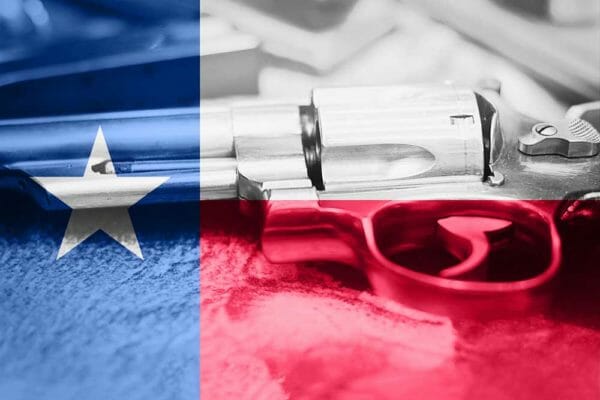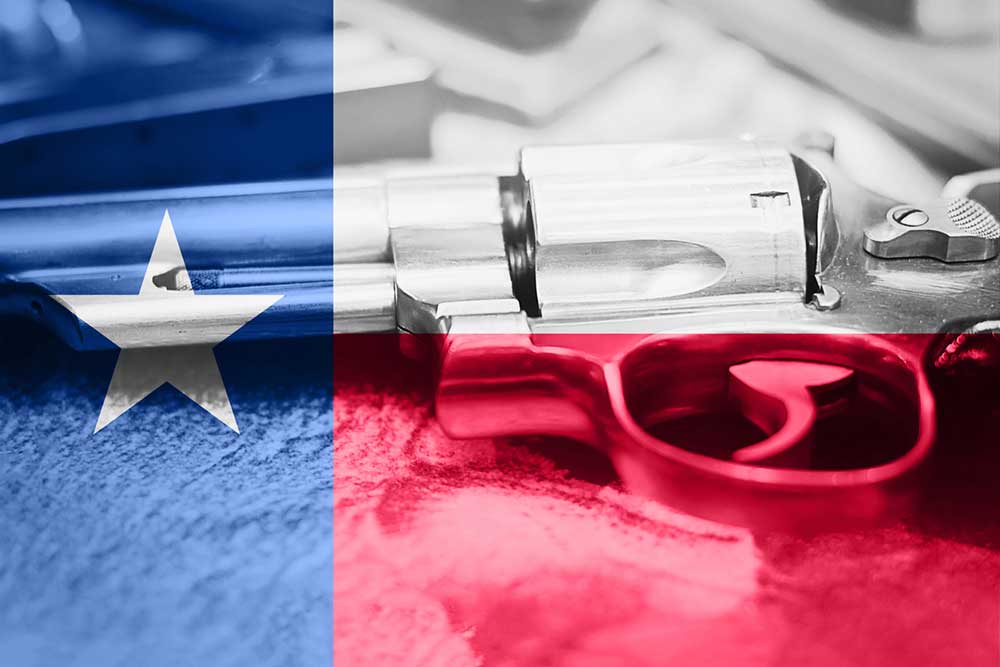Texas Senate Advances Bill Against Red Flag Laws

The Texas Senate has taken a significant step towards prohibiting the enforcement of red flag laws throughout the state. On March 26, 2025, the Senate passed SB 1362, known as the “Anti-Red Flag Act,” which aims to restrict local government entities from implementing red flag orders unless authorized by state legislation, according to a report by KHOU-TV.
Understanding Red Flag Laws
Red flag laws permit temporary firearm removal from individuals identified as posing a risk to themselves or the public. These laws allow family, law enforcement, or authorized individuals to petition courts for a firearm seizure without filing criminal charges against the individual concerned.
Key Provisions of SB 1362
Authored by State Senator Bryan Hughes (R), SB 1362 aims to uphold Texas citizens’ rights to due process. The legislation clarifies that red flag orders are defined as those “not issued on the basis of conduct that resulted in a criminal charge for the person who is the subject of the order.”
Prohibition of Red Flag Orders
SB 1362 will:
- Prevent all governmental entities in Texas from recognizing or enforcing red flag orders unless explicitly authorized by Texas law.
- Apply to state agencies, municipal governing bodies, and local government officials.
- Bar Texas entities from accepting federal funds aimed at enforcing red flag laws.
- Subject individuals to felony charges for enforcing red flag orders, unless those orders are issued under Texas law.
Legislative Context
During a Senate debate, Senator Hughes emphasized the bill’s alignment with Second Amendment rights, stating that red flag laws could lead to an individual’s firearms being seized without due process. He made clear that the bill does not influence existing family violence protection orders or cases where criminal charges have been initiated.
Legislative Support and Challenges
The bill’s passage was marked by a party-line vote, with 20 Republican senators voting in favor and 11 Democratic senators opposing it. Although SB 1362 has passed the Senate, it still requires approval from the House of Representatives to become law. State Representative Briscoe Cain has introduced a companion bill, HB 162, in the State House.
Texas Gun Rights President Chris McNutt characterized the Senate’s decision as a “huge victory for gun owners” and encouraged supporters to urge House representatives to advance HB 162. “Texas Gun Rights will not rest until gun confiscation without due process is prohibited across Texas,” McNutt stated.
Public Response and Expert Testimony
In support of SB 1362, Kyle Rittenhouse testified, highlighting the critical nature of self-defense rights and the risks posed by false accusations. He remarked, “I know first-hand the importance of self-defense and the weight that comes with exercising that right. But I also know how quickly false accusations and misinformation can be weaponized to destroy a person’s life.”
Historical Context
Historically, Texas has not enacted any red flag legislation. In the aftermath of the Sutherland Springs mass shooting in 2018, Governor Greg Abbott briefly discussed red flag laws as part of his school safety proposals. However, these discussions met resistance from pro-gun organizations and public figures, including Lt. Governor Dan Patrick.
Conclusion
With Republicans holding a large majority in the State House, the prospect of HB 162 passing seems plausible, though it has currently stalled in committee. The discussions surrounding SB 1362 not only reflect the ongoing debate over gun rights but also highlight the legal and ethical implications of due process in matters of firearm regulation.

